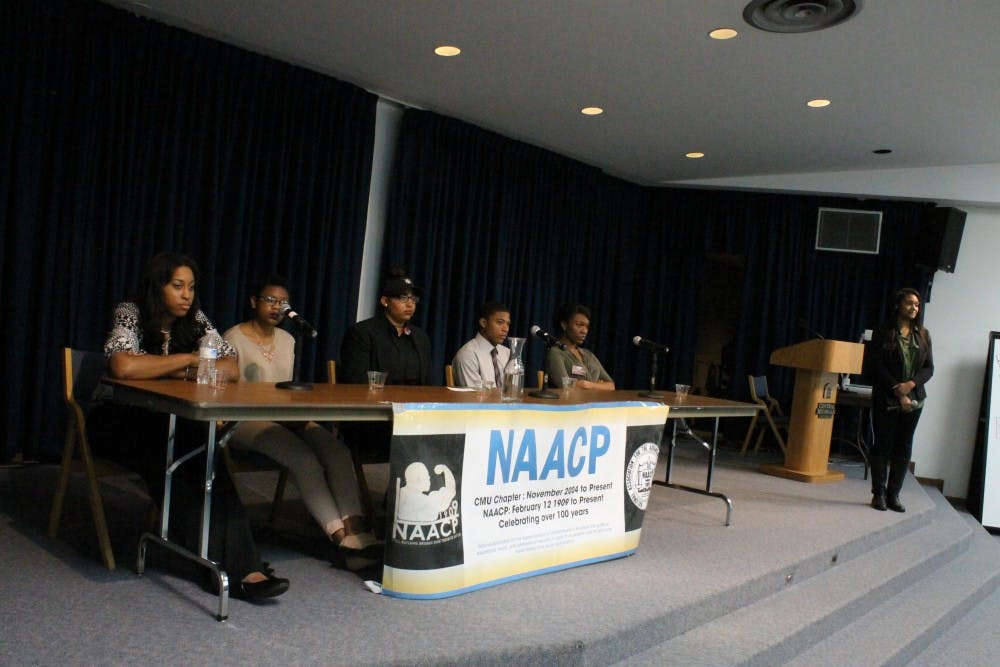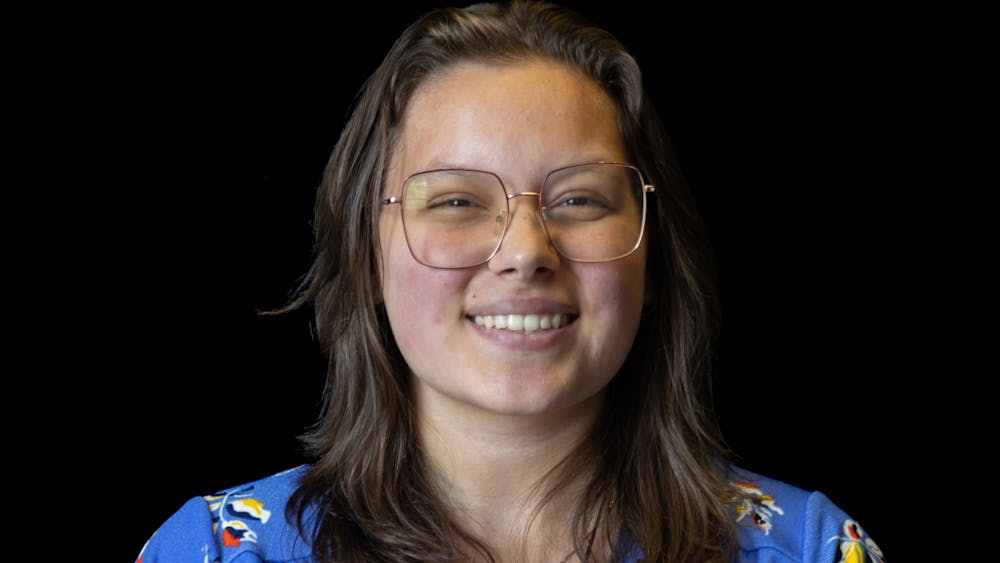University NAACP chapter hosts panel on racism within the black community

Central Michigan University NAACP panelists discuss racism within their own community at "Black Racism, Black Face" on Wednesday, Sept. 30, 2015 in the Bovee University Center Auditorium.
Defamed NAACP member Rachel Dolezal was back in the spotlight Wednesday, this time as Central Michigan University students debated her impact on black culture.
Among a number of issues affecting African Americans, black students view the Dolezal controversy as an important issue when discussion racism within their own community. That was the general consensus during "Black Racism, Black Face," an NAACP panel discussion held in the Bovee University Center Auditorium.
The event was aimed at clarifying discrimination between black people and their non-black counterparts. It was also a way to promote civil rights and social justice on campus, said Angela Hill, CMU's NAACP chapter president.
Featuring five black student leaders, and Hill as moderator, panelists debated skin tone discrimination and the hijacking of culture symbols. Topics ranged from hairstyles, personality types and Dolezal -- a white woman and ranking NAACP member who passed herself off as a black.
Dolezal was in many ways a major player in the discussion, as most of the questions revolved around her deceit and inevitable fall from grace.
Panelists were split on whether Dolezal should be maligned or praised. Some felt she did a great deal of good as NAACP president in Spokane, Washington. Jacquan Moore was one of those students.
"I just think she loved the black culture," said Moore, from Detroit. "She married a black man; taught classes (in Africana studies). Thought she respected the culture, and as an NAACP, she still did more for the community than some of the progressives in this country"
Others were not so forgiving.
"No, you can come celebrate us but you can’t act like you’ve been through some of the same things," said Myra Feagin, a Detroit junior. There have to be certain boundaries."
The same was said for non-blacks who choose to put on a "black face" or "ghetto" demeanor for approval.
"You can appreciate a culture but you don’t have to take (their symbols) on," said freshman Aminah Sayyidah. "Black people have enough of a problem trying to make a culture of their own. Black people have lost jobs because of hairstyle, but now (non-blacks) wear du-rags on the catwalk."
While young African Americans grapple with Dolezal, they must also deal with stigmas from their own people. Feagin explained that whites and other minorities often view African Americans in absolutes -- you're either black or your not, she said.
Black people, on the other hand, take that a step further.
"Other races don’t look at us as being mixed, but black people do" Feagin said. "People who are getting lighter are getting frowned upon. To others we’re just black, to blacks we’re light skinned."
For more information on the CMU NAACP or future events, visit the group's OrgSync homepage.




